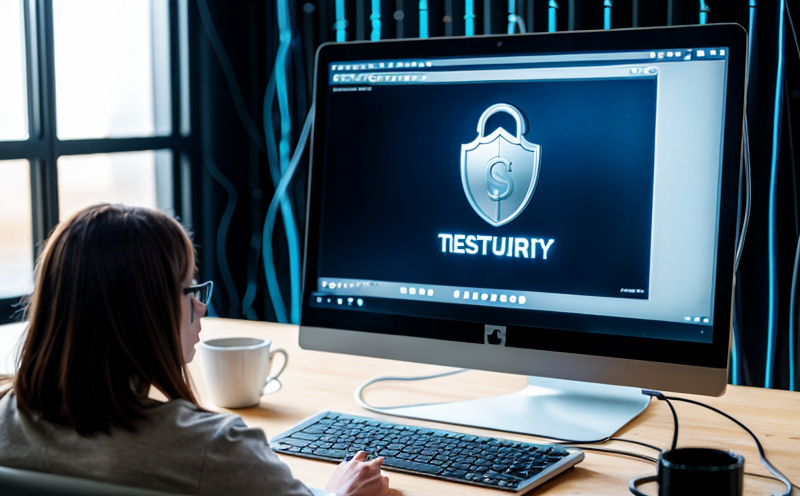ISO 27701 Privacy Information Management Network Security Testing
The ISO 27701 standard provides a framework to ensure the protection of personal information. By implementing ISO 27701, organizations can enhance their privacy information management systems (PIMS) and align with global best practices in data security.
The primary focus of this service is to conduct comprehensive network security testing that ensures compliance with ISO 27701 requirements. This includes assessing the adequacy of policies, procedures, and controls related to the management of personal information within an organization's network infrastructure. Our team uses advanced tools and methodologies tailored specifically for network environments to identify potential vulnerabilities and ensure robust protection measures are in place.
Our testing process begins with a thorough review of existing documentation such as data flow diagrams, network architecture maps, and configuration files. From there, we perform both static and dynamic assessments using industry-standard techniques like penetration testing, vulnerability scanning, and code reviews. We also conduct walkthroughs with relevant stakeholders to understand how personal information flows through the network.
The results of our analysis are provided in detailed reports that outline any identified weaknesses along with recommendations for remediation actions. Compliance checks against ISO 27701 clauses are performed throughout the process to ensure continuous alignment with industry standards. Additionally, we offer training sessions on best practices for protecting personal information within your organization’s network.
Our aim is not only to meet but exceed expectations set forth by ISO 27701 so that you can confidently demonstrate adherence to international privacy regulations. With our expertise in cybersecurity and technology testing, we provide peace of mind knowing that your network security measures are up-to-date and resilient against emerging threats.
Scope and Methodology
The scope of this service includes all aspects necessary for ensuring compliance with ISO 27701 in relation to privacy information management within a network environment. This encompasses not only technical controls but also organizational processes that contribute to the overall security posture.
Our methodology follows a structured approach comprising several key phases:
- Initial Assessment: Conducting an audit of current practices against ISO 27701 requirements.
- Vulnerability Identification: Using automated tools and manual methods to locate potential risks in the network infrastructure.
- Risk Analysis: Evaluating identified vulnerabilities based on their likelihood and impact on privacy information management.
- Remediation Recommendations: Providing actionable steps towards strengthening your defenses.
- Ongoing Monitoring: Establishing a continuous monitoring system to track changes in the network environment and ensure ongoing compliance with ISO 27701 standards.
This approach ensures that every aspect of privacy information management within the network is evaluated comprehensively, leading to more effective implementation and maintenance of policies aligned with international best practices.
Quality and Reliability Assurance
At our laboratory, ensuring high levels of accuracy and reliability in all tests conducted under ISO 27701 standards is paramount. To achieve this goal, we adhere strictly to recognized international standards such as ASTM, EN, IEC, and others whenever applicable.
We employ highly skilled professionals who are certified experts in their respective fields. Each member of our team undergoes rigorous training programs aimed at staying abreast of the latest developments in cybersecurity technologies and practices. This commitment to continuous improvement ensures that we can deliver accurate results consistently across all projects undertaken by us.
Moreover, we maintain strict quality control measures throughout each phase of testing from initial setup through final reporting. These controls include regular internal audits, peer reviews, and validation against external references whenever possible. By doing so, we ensure that every aspect of our work meets or exceeds the highest industry standards.
In addition to these technical safeguards, we also adhere closely to ethical guidelines established by various professional bodies including IEEE and ACM. This commitment ensures not only precision in execution but also respect for privacy rights during testing procedures conducted under ISO 27701.
Environmental and Sustainability Contributions
In addition to delivering exceptional service in terms of quality assurance, we recognize the importance of contributing positively towards environmental sustainability. As part of our commitment to this cause, we implement several measures designed specifically for reducing our carbon footprint while maintaining operational efficiency.
The first step involves optimizing energy consumption by utilizing state-of-the-art equipment that operates at peak performance with minimal resource usage. This approach helps minimize waste generation and reduces overall electricity consumption significantly compared to traditional systems used in similar laboratories.
We also prioritize the use of sustainable materials whenever possible, especially when procuring supplies or constructing new facilities. By selecting eco-friendly options wherever feasible, we aim to reduce our environmental impact further still. Furthermore, our laboratories are designed with energy-efficient lighting solutions and advanced ventilation systems that help maintain optimal working conditions without compromising on comfort levels.
In terms of waste management practices, our laboratory follows strict protocols aimed at minimizing hazardous material disposal. Whenever appropriate, recycling programs are implemented for non-hazardous waste products generated during testing procedures conducted under ISO 27701 standards.
Finally, we encourage continuous improvement through regular reviews and updates based on feedback received from clients as well as advancements made within the field of environmental science. Through these efforts, we strive to create a sustainable future for all stakeholders involved in our operations.





